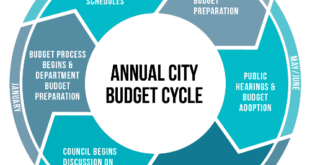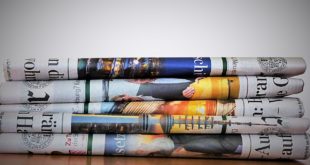By Jim Stasiowski
One of my favorite failures was my story about professional wrestling.
(In my youth, it was called “wrassling,” and no, I didn’t see matches in the Colosseum in Rome. Mom and dad wouldn’t let me go.)
 The story was my idea. A young reporter in Florida back in the late 1970s, I talked my editor into letting me and a photographer go to a pro-wrestling event some miles away.
The story was my idea. A young reporter in Florida back in the late 1970s, I talked my editor into letting me and a photographer go to a pro-wrestling event some miles away.
That was when I first learned The Curse Of Too Much Good Stuff.
I gathered enough gold for a half-dozen good stories, and for my wrestling piece, I was sure I was about to be acclaimed winner of a Pulitzer Prize, or a Nobel, even, for literature.
But I blew it. I was so intent on getting good stuff, I forgot the first rule of writing, which is: Make sure you’re getting paid to do it.
Oh wait: I was getting paid. What I actually forgot was the second rule of writing: Be sure you have a story to tell.
I didn’t. I had stuff – glorious quotations, brilliant metaphors, perceptive descriptions – but I didn’t know what to do with it all. In the end, my story detailed what the people in the crowd did while the actors … er, athletes performed in the ring, but I didn’t have a unifying theme, I didn’t know what my central conflict was. I was showing off with gags and giggles – I do remember one baby-faced girl, dressed as if for a formal dinner, shouting obscenities at one of the wrestlers – but I struggled to make a point, to enlighten readers with my depth of understanding of human nature.
Heck, I would have settled for depth of understanding of a hot dog vendor.
I relearned the lesson recently when I covered a trial. The most virulent outward symptom of my trial distress was exactly the same as with my wrestling mess: a notebook bulging with booty.
When we’re determined to force in all the good stuff, we’re committing the sin of presumption. We’re thinking, “This’ll be good all by itself. It doesn’t need me to guide it.”
But just as a football team loaded with superstars sometimes fails to function cooperatively, the story filled with glittery elements often has too many of them fighting for readers’ attention.
For instance, I was looking at a reporter’s story full of spectacular quotations.
But that was the problem: Because there were so many, all were crowded into paragraph-after-paragraph, meaning none stood out as a highlight or climax. An endless series of highs would wear out readers who need occasional respites from all those peaking emotions.
Another writer committed the sin of the overreach. She was convinced she had an extremely strong story, so she tried to outdo its best elements by writing a lead sentence so profound, its intent was to dazzle.
Instead of dazzling, it blinded me, as I tried (in vain) to understand her lofty prose.
But by far, the worst sin is the lack of a central message the writer is trying to convey.
As a coach and editor, I’ve learned to be suspicious when a reporter practically hurdles over to my desk to exclaim, “You’re not going to believe this great quote I got from (whomever).”
At that point, one thing is certain: No matter what the story is about, that quotation will appear in it.
I would never argue that we shouldn’t use colorful quotations, details or other unexpected or quirky elements that we collect in our reporting. Often such elements either steer us toward a surprising central conflict or at least add spice to stories.
But a story is not a mere collection of attractive pieces, like the perfectly groomed, impeccably dressed mannequins in the windows of department stores. A story can have attractive pieces, but they must be held together by solid, unspectacular elements, the who-what-whens, the explanations, the time elements, the technicalities.
Be proud of the superior stuff you gather, but humble enough to recognize a story is more than an ESPN collection of highlights.
THE FINAL WORD: There is a perfectly good word, “ingenuous,” which means naïve or without guile. There is a perfectly good word, “ingenious,” which means clever, resourceful, inventive. They are separated by two words in the dictionary, but by miles and miles of meaning.
Jim Stasiowski, managing editor of the Rapid City Journal, welcomes your questions or comments. Call him at 605 716-0981 or write to 1122 City Springs Road, Apt. 205, Rapid City, S.D. 57702.
 Nevada Press Association The best in Nevada journalism since 1924
Nevada Press Association The best in Nevada journalism since 1924



